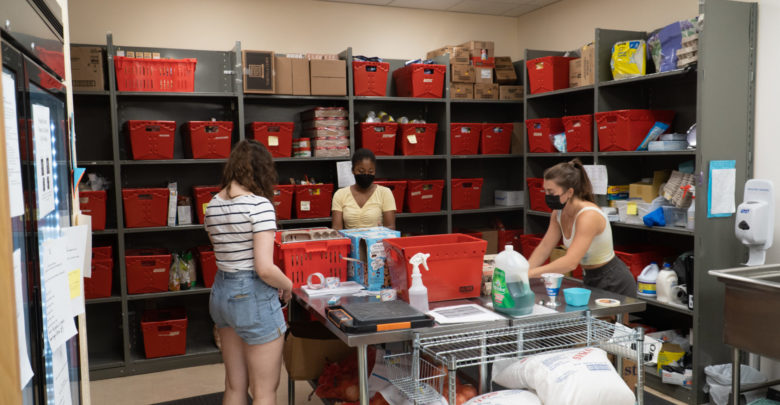Myth-busting international student food bank usage
All U of A students, regardless of immigration status, deserve adequate access to food and will always be welcome at the CFB.
 Martin Bendico
Martin BendicoThis guest column is written through a partnership with the University of Alberta Campus Food Bank and The Gateway.
For the past few months, Canadian international students have faced immense scrutiny over their use of food banks. Several news articles and social media posts have alluded to their apparent misuse of this essential service, with one food bank deciding to ban international student clients altogether. As a Client Engagement Coordinator with the University of Alberta Campus Food Bank (CFB), I want to clear the air around how this issue affects us at the U of A.
Most issues surrounding international student use of food banks link to larger, systemic problems. It’s important to know that food bank use is not the same as misuse.
Over 70 per cent of our clients at the CFB are international students. According to a survey done by Meal Exchange, 74.5 per cent of Canadian international students were food insecure in 2021.
There are numerous policy-level factors contributing to increased food bank usage among international students. The main contributing factor is increased tuition fees. International students pay up to five times the tuition of domestic students.
As well, with cuts to provincial grants to post-secondary institutions, universities have become increasingly reliant on revenue from international student tuition. In 2018-19, one-third of the tuition received by Canadian universities came from international students. What’s more, tuition for all U of A students has been on the rise in recent years.
Living costs in Edmonton including groceries, housing, and transportation have also increased. These costs have inflated a staggering 33 per cent overall between 2006-21. There are several factors that may contribute to greater financial challenges for international students than domestic students. Per federal policy, international students are not eligible for the Canada Summer Jobs program. This, coupled with the aforementioned factors, leave many struggling to afford groceries, among other basic necessities.
Some community members are of the opinion that international students should not have access to food bank services. The belief is that they should have the means to support themselves for the duration of their studies. However, this line of thinking is misguided.
When international students apply for a study permit, they must show “proof of financial support” to sustain themselves during their post-secondary education. Incoming international students will face a higher threshold than current international students. Current international students had to demonstrate they have at least $10,000 per year, or $833 per month, on top of their tuition. This amount falls rather short of the estimated annual cost-of-living in Alberta of $15,060–$18,060.
If international students are not given a fair and accurate estimate of the cost of living prior to their arrival, it makes sense why so many have to turn to food banks to support themselves during their studies.
It is also worth mentioning that like domestic students, international students also pay toward campus services in their semesterly fees. As a result, international students are equally entitled to the usage of these services, such as the CFB.
While reliable access to social services does not contribute to a culture of welfare dependency, society continues to stigmatize food bank use. People may hesitate to access food banks out of fear that others will find out and judge them for it.
The current negative conversations on international students only adds to this stigma. It may prevent people in need from accessing this essential service. We at the CFB firmly believe that access to food is a fundamental right and that students have never been nor will ever abuse our services. All U of A students, regardless of immigration status, deserve adequate access to food and will always be welcome at the CFB.
Many policy-level, non-individual-level factors contribute to increased food bank usage among international students. These include rising tuition and cost-of-living, inadequate funding opportunities, and misleading financial support estimates. It is glaringly apparent that both governments and universities continue to view international students as mere revenue streams and do not have the adequate support and policies in place to empower them to succeed.
We must recognize that international student food bank use fits into the larger picture of food insecurity, which has worsened in recent years. Ideally, all people should have the means to purchase adequate healthy and culturally appropriate food on their own. As community leaders, we need to critically reflect on and advocate for reformation of the policies that lead people to becoming food insecure in the first place.




